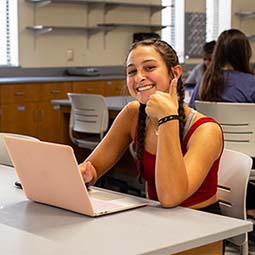More than 14 million Southern households report facing energy insecurity, and more than 1.5 million individuals lack complete plumbing. In South Carolina, rising temperatures and aging infrastructure mean many households lack access to safe and affordable energy and water. Also, some of the state’s lowest-income residents face the highest energy bills.
A transformative class by David Fuente and Conor Harrison aims to empower students to turn the tide on these challenges.
Beginning in Spring 2024, the course “Research in Energy and Water Equity” will introduce students to critical challenges stemming from the complexities of climate change and socioeconomic inequality. Students will gain valuable experience for their careers by working with local groups to promote equitable access to high-quality energy and water services.
Students will learn problem-solving skills, research methods, and how to steer policy changes and forge community partnerships. The course includes multiple field trips and visits to community organizations that promote local energy and water equity. There is also an overnight research trip to the Baruch Institute in Georgetown, SC.
 Register for Fall 2025/Spring 2026
Register for Fall 2025/Spring 2026
ENVR 490/GEOG 310
Research in Energy and Water Equity
The Undergraduate Bulletin contains the most up to date course registration information. Check there for current
course offerings.
Beyond the benefit to students in the class, these projects will ultimately work towards
providing relief from the effects of inequality in our communities.
This course is ideal for students majoring in fields ranging from environmental studies, environmental science and geography to engineering and public health.
With backgrounds in environmental economics and policy and economic geography respectively, Fuente and Harrison bring interdisciplinary expertise on water and energy.
“We hope that this course provides students with the skills they need in the workforce, as well as skills important to their lives as engaged citizens,” Harrison says.
“Given the challenges we face from the changing climate, understanding how energy and water issues affect everyday people is critical to helping others make informed decisions about our environmental futures.”
A grant from the McCausland Teaching Innovation Fund covers all course expenses.
